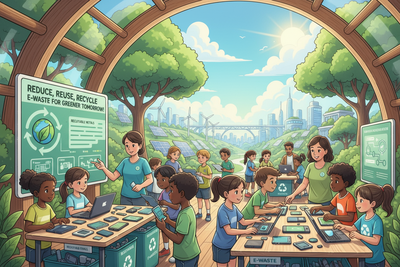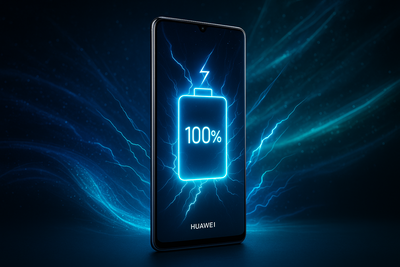Introduction
This speedy technology age finds us upgrading our laptops, mobile phones, and phones in a rush. Do we ever stop to think about what becomes of the old ones? Most of this old electronic waste, or E-waste, ends up in the dumps. E-waste dumping is a serious problem that affects the environment and health. The lack of eco-friendly wastes means makes it all the more problematic. E-waste pollutes air, land, and water if not handled in the right way. Implementation of sustainable waste systems is the answer to stopping this. This blog explains the real dangers of dumping E-waste and how sustainable waste systems can assist. Why E-Waste Is a Growing Threat to Our World
Why E-Waste Is a Growing Threat to Our Planet
Old phones, unused handsets, and broken laptops are typically dumped haphazardly. This untreated electronic waste has toxic substances such as lead, mercury, and cadmium. These toxic compounds render electronic waste hazardous to human beings and the environment. With no sustainable waste initiatives, these toxic substances seep into water and land. In most areas, there are no sustainable waste legislations that enable this pollution to spread. Proper treatment of electronic waste through sustainable waste systems ensures the conservation of our future. Everyone needs to know why electronic waste must not be disposed of haphazardly. Health Hazards and Environmental Pollution Because of E-Waste
- Rising gadget use leads to more E-waste from mobiles, phones, and laptops.
- Toxic materials like lead and mercury leak into soil and water.
- Lack of sustainable waste systems worsens environmental damage.
- E-waste pollutes landfills and harms wildlife.
- Poor countries often become dumping grounds for global E-waste.
- Without sustainable waste management, the problem keeps growing.
- Burning or burying E-waste releases harmful gases into the air.
- Urgent need to adopt eco-friendly and sustainable waste solutions.
Health Hazards and Environmental Pollution from E-Waste
E-waste results in the spread of poisons through air, water, and plants where waste systems are not sustainable. Nature is also polluted by E-waste through toxic chemicals emitted into earth and rivers, killing wildlife and food chains. Plastic waste from E-waste is ingested by fish and thereby reaches humans. Only effective sustainable waste management can break this cycle and save human beings and the planet from E-waste hazards. Why Recycling E-Waste Is the Smart Way
Why Recycling E-Waste Is the Smart Choice
Rather than rejecting E-waste, we can collect, sort, and recycle material from used laptops, mobiles, and phones. This saves resources and energy. Almost all of the components in E-waste—such as copper, gold, and plastic—are reusable. Recycling aids sustainable waste management by minimizing landfill space usage. Recycling also eliminates the demand for extracting new metals. Nations with robust sustainable waste management systems recycle more than 50% of their E-waste. Going global towards sustainable waste will make the world cleaner. Let us encourage good recycling to prevent the threat of E-waste. Fonezone urges customers to recycle mobiles, phones, and laptops responsibly. What You Can Do to Help with E-Waste
What You Can Do to Help with E-Waste
Do not throw away old phones, mobiles, or laptops. Repair or reuse them instead. Companies have initiatives where they accept old devices and recycle them. Recycling makes you part of environmentally friendly waste action. Avoid buying gadgets that you don't need—this reduces future E-waste. Choose companies that practice green waste and have take-back programs. Ask your local leaders to build environmentally friendly waste depots near you. If everyone makes wise choices, we can minimize E-waste. Little things lead to big things. Recycle old phones and computers through reputable agencies such as Fonezone. E-Waste and the Global Economy
E-Waste and the Global Economy
By discarding old gadgets, we are wasting materials worth billions. These products are recyclable, reducing the price of new goods. Smart countries generate revenues from recycling E-waste using eco-friendly waste management systems. Green waste recycling labor can have long-term jobs. Businesses that spend on E-waste recycling gain customer trust and revenue. If more nations embrace green waste avenues, international business trade in green technology will grow. E-waste needs to be seen not as waste, but as a treasure. Conclusion
Conclusion
From harming health to damaging the environment, the implication of improper disposal of E-waste is dire. The solution is intelligent, sustainable waste management. Each discarded phone, mobile, or laptop must be treated as a resource, not trash. Governments, companies, and people must unite to reduce, reuse, and recycle. Only through embracing robust sustainable waste strategies can we create a cleaner, more secure world. Let's cease neglecting the harm inflicted by E-waste. The moment is now to take action for our planet.
Frequently Asked Questions (FAQs)
Q.1. What is E-waste?
E-waste is unwanted electronic waste like old mobiles, phones, or laptops.
Q.2. Why is dumping E-waste harmful?
Dumping E-waste pollutes soil, water, and air with toxic substances.
Q.3. What is sustainable waste management?
It is the safe and eco-friendly way of handling E-waste through reduce, reuse, and recycling.
Q.4. How can I dispose of old phones responsibly?
Use recycling bins, return programs, or donate working devices.
Q.5. Why should companies care about E-waste?
Because they create the products, they must support sustainable waste systems to reduce pollution.






















